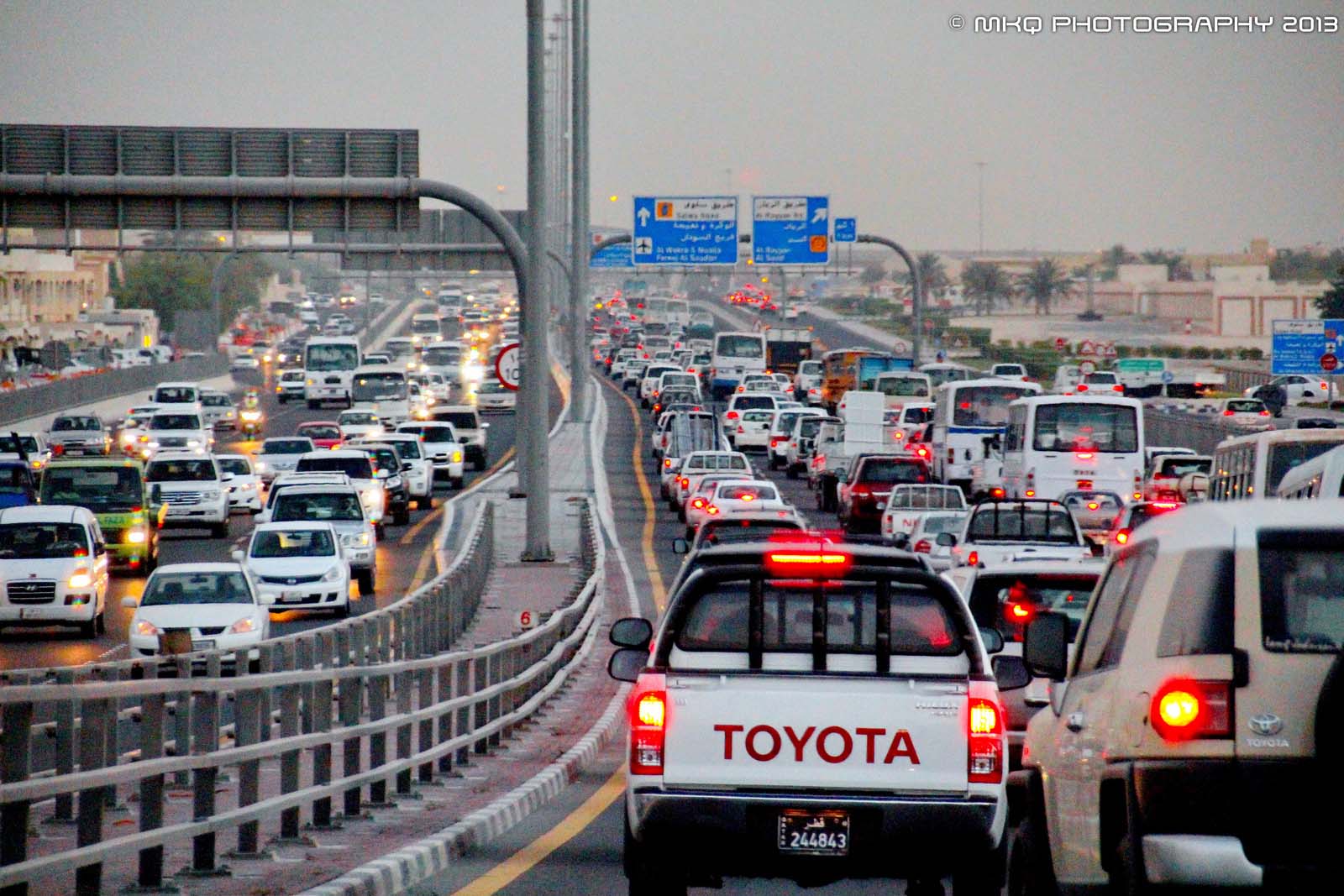
Commuters in Qatar spent an average of 102 hours in traffic last year due to congestion, a local technology firm has said.
That wasted time costs the economy billions of riyals a year, according to the Qatar Mobility Innovations Center (QMIC), which released a report today that attempts to quantify the impact that traffic jams have on the country.
The results are based on more than 50 million pieces of data collected through QMIC’s network of traffic sensors, cars outfitted with GPS devices and information from users of its iTraffic mobile app.
It found that the average commuter spent the equivalent of slightly more than four full days in traffic due to congestion.
QMIC based the figure on how slowly vehicles are moving during peak hours compared to when traffic is flowing freely.
“Compared to other countries, traffic congestion levels in Qatar in 2015 seem high,” said Fethi Filali, the head of technology and applied research at QMIC, in a statement.
Why so slow?
While Qatar’s growing population means more vehicles are clogging up the country’s roads, Filali said construction also likely played a role.
“As the road network gets stable with the completion of key road projects, we expect the level of congestion to improve,” he added.
Many of the construction projects that are currently underway are aimed at improving the flow of traffic in the long term – but do cause jams in the interim.

Examples include the construction of new expressways, such as upgrading Al Rayyan Road so it can handle vehicles traveling at higher speeds, and the conversion of overtaxed roundabouts into signalized intersections.
Also in its report, QMIC estimated that congestion cost the country between QR5.2 billion and QR6.8 billion in lost productivity.
Qatar’s GDP would climb by between 0.7 and 0.9 percentage points if all of the country’s employed labor force were to use the time they spent stuck in traffic at work, the company added.
Officials at QMIC said they plan to expand their research to include the environmental, health and societal costs of traffic congestion in future versions of the study.
How much time do you spend stuck in traffic here? Thoughts?







